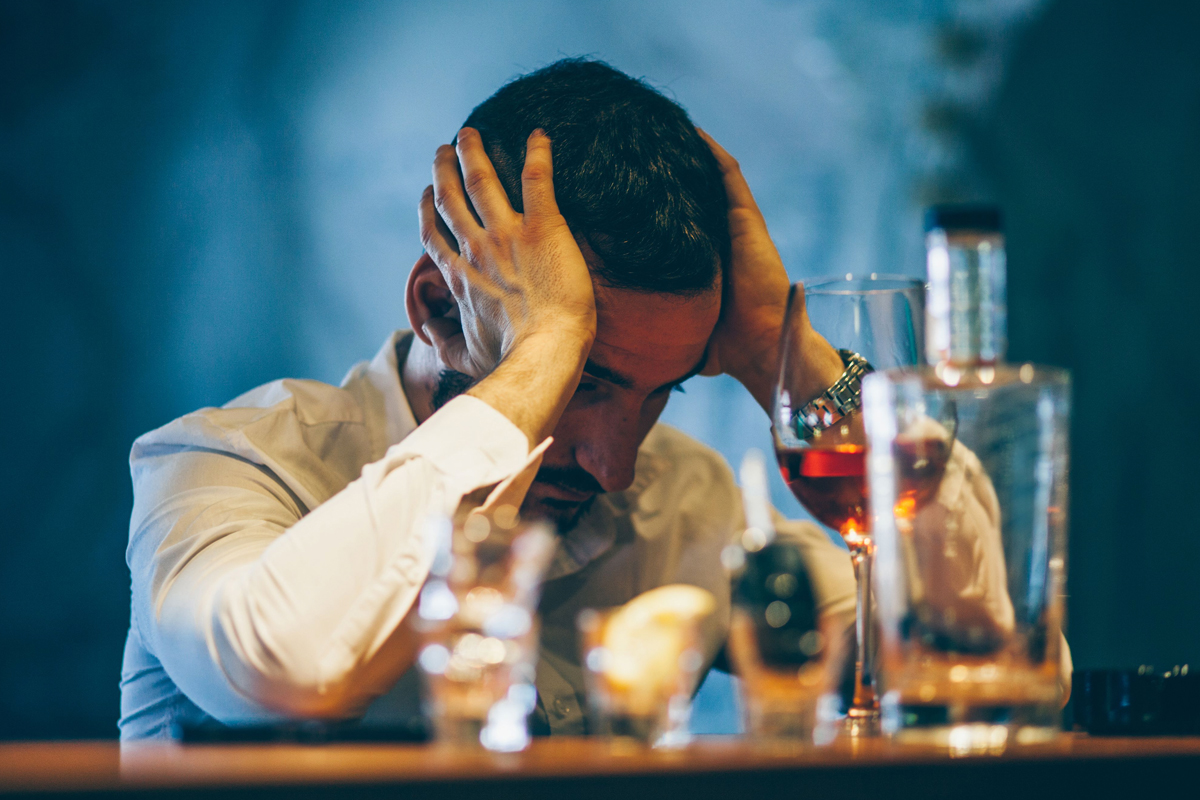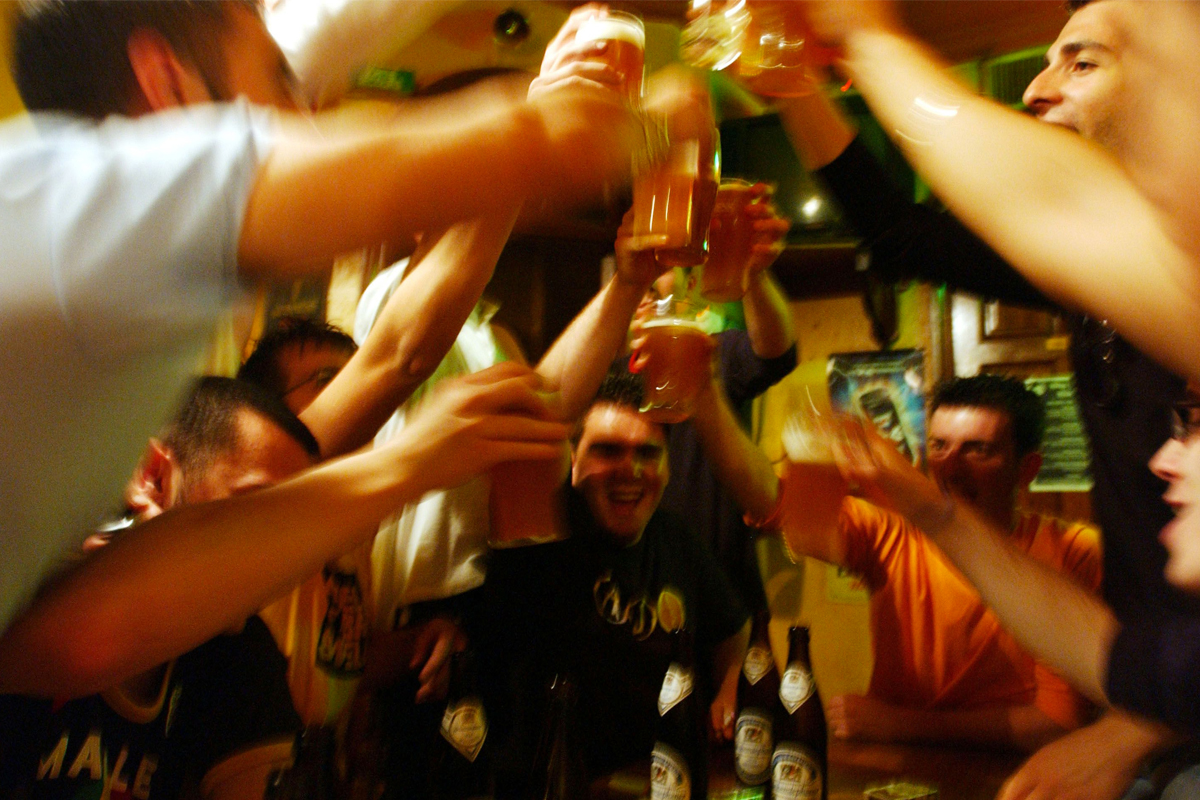DMARGE spoke to Adrian Dunlop, Conjoint Professor at the University of Newcastle, to discover exactly what happens to your brain when you go on a two-day bender.
Some people, namely those in their twenties, love spending their weekends on a bender; a booze cruise, if you will. You know, devoting Friday and Saturday nights to going out, doing shots, drinking cocktails and perhaps indulging in recreational drugs…
And everyone knows the result of an alcohol-fuelled weekend: a horrid hangover that encompasses all day Sunday and for some poor bastards, the better half of Monday too. But have you ever wondered what drinking that much alcohol is doing to your body aside from the hangover?
Well, as it turns out, ‘the dangers of alcohol’ isn’t just a catchy slogan. There really are dangers that come along with drinking alcohol; especially on binge drinking benders…
DMARGE spoke with Adrian Dunlop, Conjoint Professor at the University of Newcastle, who has over 25 years of experience as an addiction clinician. And Professor Dunlop revealed that your brain can get seriously affected by drinking heavily.
“There’s something called alcohol-related brain injury. So, alcohol affects the function of your brain, particularly memory functions, and that’s why old drinkers find it really hard to learn anything new. They can only remember stuff they’ve learnt years and years ago [and] their attention is really poor. [Alcohol-related brain injury,] it’s very not well understood and very underdiagnosed because people don’t know about it.”
Adrian Dunlop, Conjoint Professor at the University of Newcastle
Echoing Professor Dunlop’s comments, The Victorian Government’s Department of Health states that alcohol-related brain injury – or as they call it, impairment – can lead to problems with memory, thinking-related abilities and physical coordination; permanently in some cases. And currently, roughly 200,000 Australians are undiagnosed.

Plus, while their research shows that alcohol-related brain impairment is more likely to occur if a person drinks heavily on a regular basis over many years, don’t think because you’re young, it won’t affect you just yet and it’ll be an issue for you to deal with later in life… Because that’s not the case; young excessive binge drinkers are also at risk.
Another effect that going on a bender will have on your brain is what’s called ‘reduced brain function’. This is an extremely short-term effect and can cause people who have had a few drinks to experience difficulty walking, blurred vision and a slowed reaction time. It can also, as Professor Dunlop disclosed, cause blackouts.
“Once you get above a certain dose of alcohol in your brain, your short-term memory is totally wiped out, so you don’t remember what you’ve done.”
Adrian Dunlop, Conjoint Professor at the University of Newcastle
If you go a little harder than alcohol during a night out on the town and partake in recreational drugs, that’s not doing your brain any favours either. The Department of Health outlines many negative effects that drugs can have on your brain and body.
Cocaine gives users a euphoric feeling because it instantly triggers the release of dopamine in the brain. However, this rush only lasts fifteen to thirty minutes and that’s when other effects can come into play. Cocaine users can then become extremely agitated, paranoid and aggressive. They could also experience dizziness, hallucinations, nausea and vomiting, tremors, headache and heart pain.
Long term, using cocaine regularly can lead to severe depression and something called ‘cocaine psychosis’ – symptoms of which include aggression and disturbing hallucinations like seeing or feeling insects under the skin.

Ecstasy (also known as MDMA) can cause users to feel euphoric, energetic and confident but also aggressive, paranoid, anxious and irritable. Long term, regularly using Ecstasy can cause “permanent damage to the brain cells that make the neurotransmitter serotonin – which is involved in mood regulation, body temperature, appetite and sex drive.”
Shockingly, research suggests that using Cannabis AKA marijuana, Mary Jane, pot, weed, ganja – we could go on – can trigger life-long-lasting psychotic symptoms in a person predisposed to psychosis (meaning they have a family history of psychotic illness, such as schizophrenia); even if the person only tries cannabis once.
Also, doctors highly recommend that people with a psychotic illness should not use cannabis as it can make existing psychotic symptoms worse. However, for people who don’t suffer from a psychotic illness or aren’t predisposed to psychosis, cannabis makes users feel relaxed but potentially anxious, paranoid and/or confused as well.
Long term, frequent cannabis use can cause poor concentration, memory loss and learning difficulties. However, when speaking to Professor Dunlop, he mentioned that a study done by health professionals deemed cannabis as the least harmful substance a person (who doesn’t have a psychotic illness) can take.
“Cannabis is the least harmful of all.”
Adrian Dunlop, Conjoint Professor at the University of Newcastle
Professor Dunlop also revealed that this study deemed that the most harmful substance people can take is alcohol, which ironically is the only legal substance we’ve mentioned in this article.

Of course, many countries – Australia included – have a rather toxic drinking and drug culture so we understand that, for the time being at least, people will not suddenly stop engaging in benders.
We’re even willing to bet that as you’re reading this, you’re thinking, ‘Oh damn, going out with the boys is ruining my brain and health. Oh well, it’s fun and #YOLO!” And so, we asked for Professor Dunlop’s professional opinion on how you can minimise the risks associated with benders.
“[Keep] a record of how much you drink. If you just think about how much you drink and not just, ‘Another one, another one!’ As soon as you become more conscious [of how much you’re drinking, you’ll] start to drink less… Oh [and] have a full stomach, not an empty stomach.”
Adrian Dunlop, Conjoint Professor at the University of Newcastle
He also recommended just sticking to one substance; so if you’re going to drink, only drink, if you’re going to smoke pot, only smoke pot as “mixing different substances can be dangerous.”
There you have it. We know you’ll now go forth and start looking forward to your next weekend of debauchery but please try to either take on Professor Dunlop’s advice or cancel your plans altogether… Your brain will thank you.
Read Next
